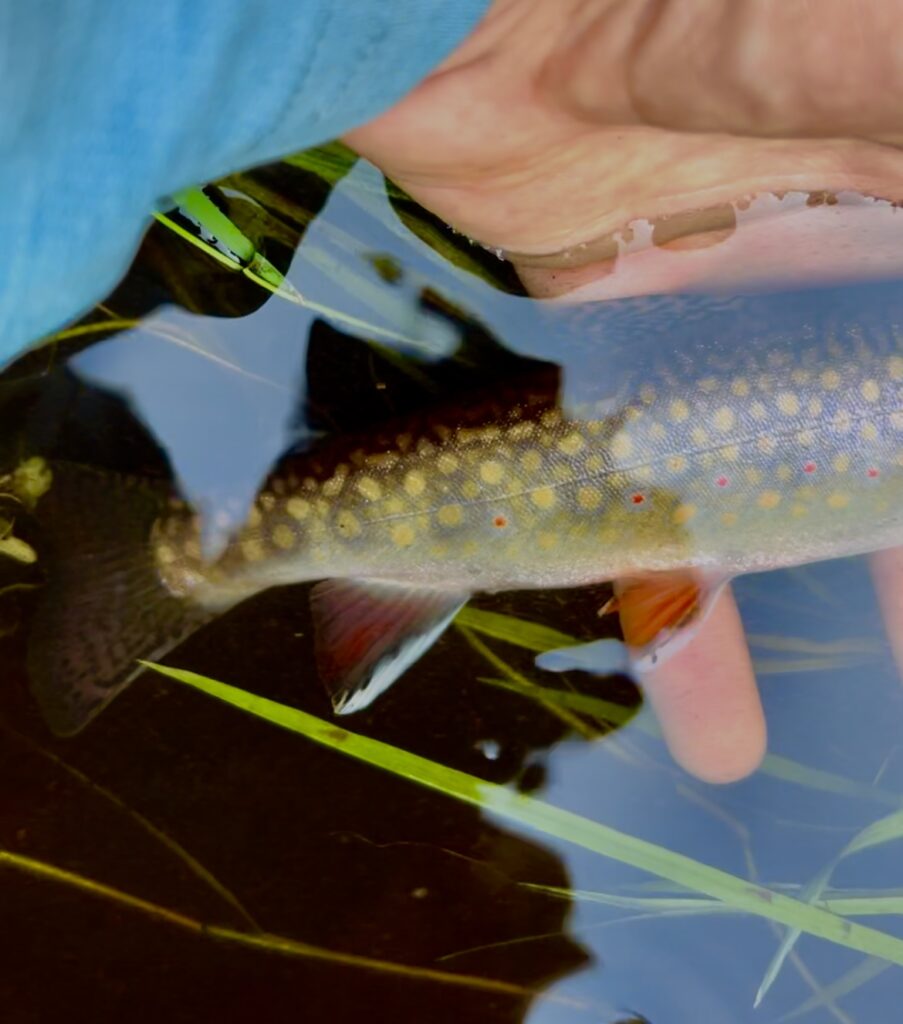The quick update: It’s been warm. I really forgot how brutal the East Coast heat is. I’ve been to parts of the country where my friends wouldn’t bat an eye at weeks of ninety degree temperatures, but they never understand the humidity here. Wet New England air stays on you like one of those weighted blankets people buy for their anxious dogs. You can cut through it with a knife, but sometimes a chainsaw is better. It’s draining, suffocating, inescapable. But the scariest part is that it’s getting worse.
When the heat first arrived after I returned from the West, I thought I just needed to adjust again after missing a few summers here. Despite being prepared for the usual string of scorching days, I couldn’t help but notice that they seemed to be lasting longer. A quick check online confirmed that records were breaking left and right in 2024, first by the days, then by the months. There is virtually nowhere on Earth that hasn’t been touched by climate change, but it was hard to notice how bad things had gotten in Oregon just spending a few short years there. In my native Northeast however, I can feel the differences between the cooler summers of my childhood and the days that burn through the middle of the year now. I can walk through rivers I used to fish in Vermont that are virtually lifeless after being blown to smithereens by consecutive years of catastrophic flooding. If you’re a dedicated angler who’s in tune with their local systems I doubt I have to explain this further, but things are undeniably changing, and things are going to be lost.
But how about that Boston fishing!
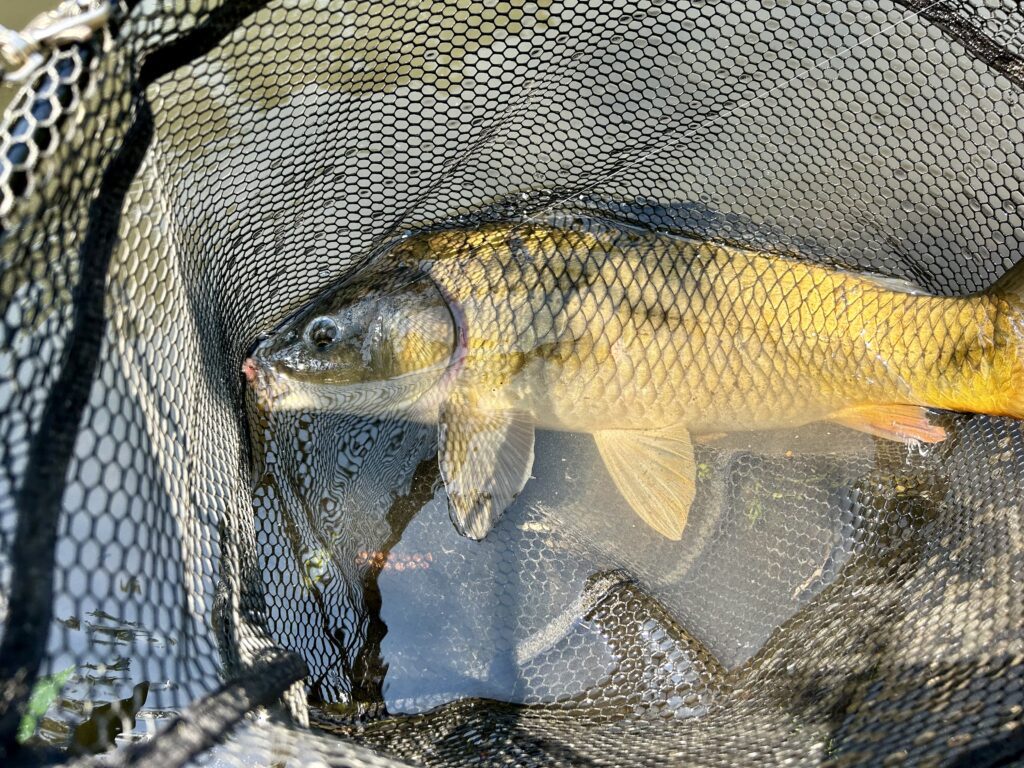

I’d spent the last month and a half more or less fishing the same stuff. The carp and other warm water scenes near my place have been productive enough that it’s easy to keep going back on weeknights and lunch breaks, and most of my full open fishing days have been spent further out of town around Vermont, New Hampshire, and Maine. There’s certainly something to be said about starting to dial in fisheries by repeatedly going back, but my knowledge on this area is still in its infant stages. I was well overdue to step outside of the comfort zone.
Just outside of Boston are a number of muddy, low gradient rivers. They wind their way through upscale countryside communities and historical neighborhoods before emptying out into the larger coastal waters. The systems had first come into my sights through my local friends, Jon and Charlie, as potentially a good spot to target pike. Pike aren’t native to this area of Massachusetts but were introduced years ago and now, according to a few seasons’ worths of online reports, seem to be doing pretty well.
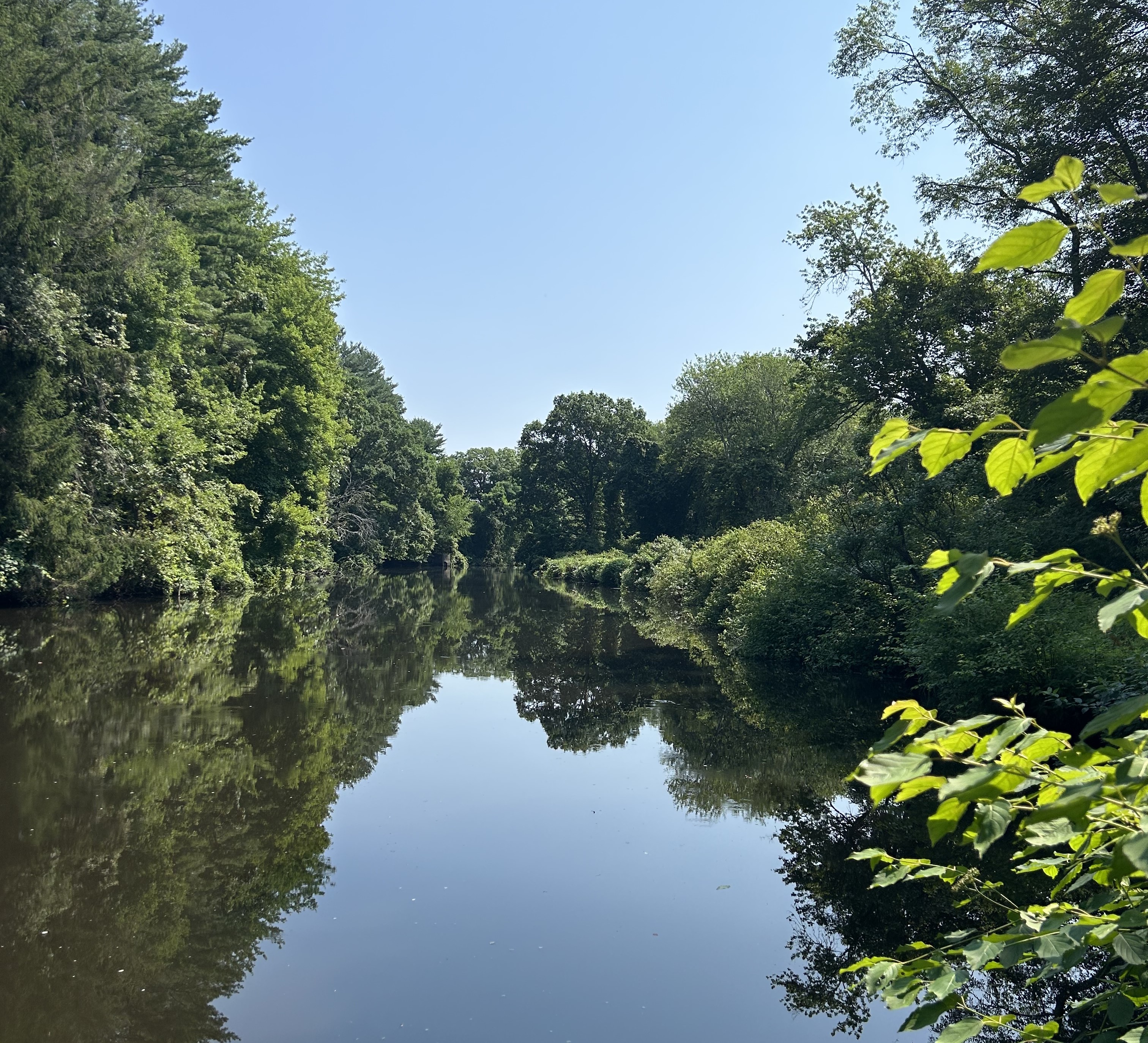

Over one recent weekend, the three of us decided to drop a canoe into a few of the spots we’d found and see for ourselves. Saturday was a deviation from the regular weather we’d been having in the area: For once low, thick clouds had locked in above us and there was a real potential for some humidity breaking rain. As we launched at the first site, the potential turned into a money-back guarantee and we got absolutely power washed by the skies for the first thirty minutes of the day.
Eventually the rain moved on, and we continued our float downstream with a couple inches of water in the boat. The gloomy weather was undeniably pikey and the slow, wood choked river fit the bill as well.
Floating this stretch for a good chunk of the day was informative, but not very successful. Charlie got a small pike out of a likely logjam and we all had a few other tiny ones swipe after our streamers, but we didn’t see much in the way of overall esox activity. I can blame it on unfamiliarity or warm water for now, but I’m sure there’s some in there and we’ll be back.
On a side note I did, however, learn a little about the thriving largemouth bass kayak scene in the Boston area. From this first pike spot to almost everything else we’d hit that weekend, we’d run into spin fishermen with some serious small water setups. The full rigs, with multiple sonar displays and spot lock trolling, might’ve cost more than my car, but if they were present on these inconspicuous bodies of water maybe we were on to something. We did encounter a couple of nice bass throughout the float, including a pretty big one that ate a small muskie streamer Jon was fishing and threw the fly on a jump. We had pike on the mind through that whole morning, but the day one spot might be worth coming back to for some LMBs.
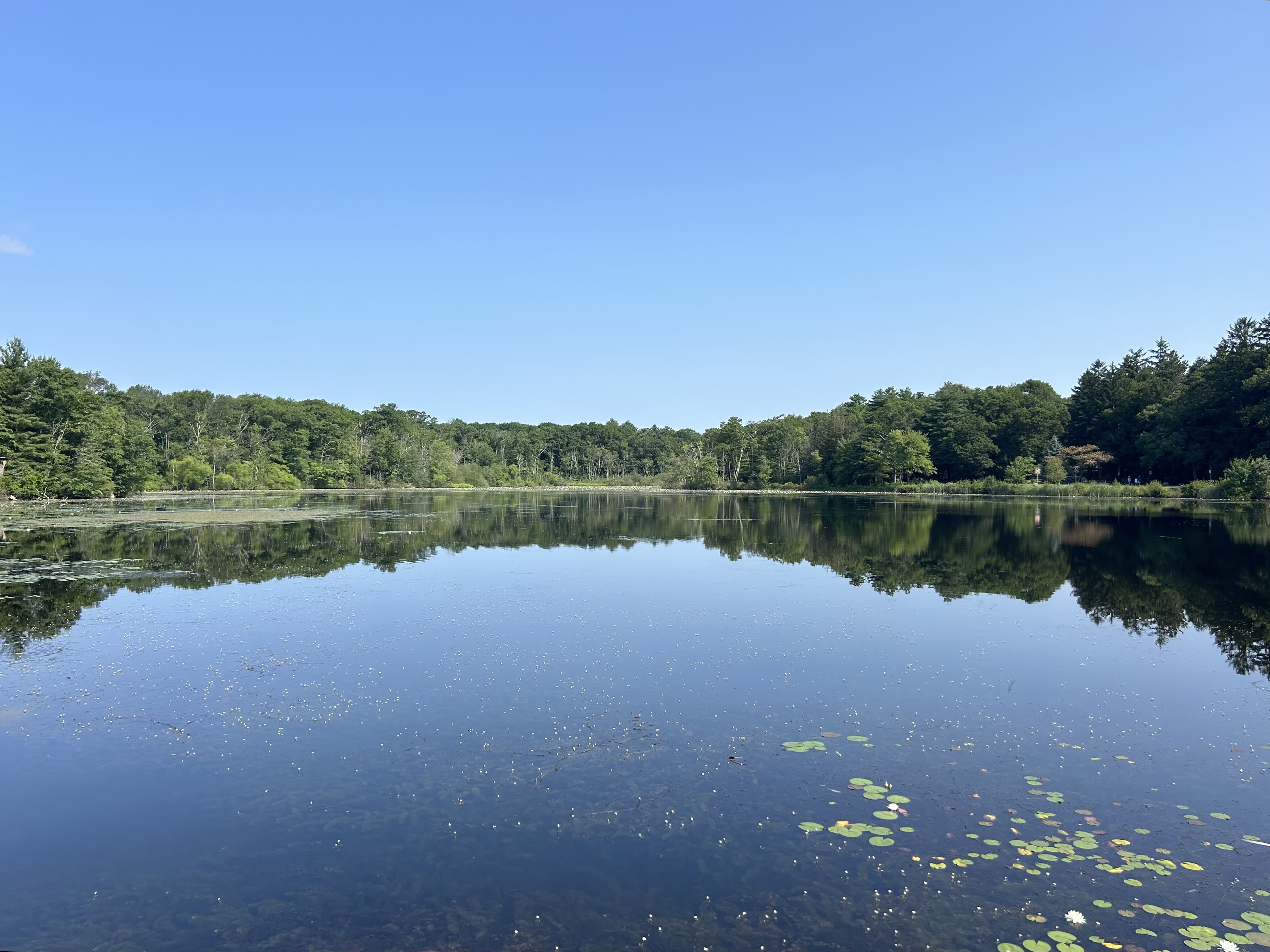

In fishing, what can you do when a decently thought out effort proves almost completely fruitless? Why, try something just as hard with an even rarer species of course. By the drive back from our mostly failed pike mission, we were already planning the next day to track down another species none of us had caught in Massachusetts: Bowfin. Although we were familiar with catching these primitive bottom dwellers out of state, there are a handful of water bodies in the commonwealth that have them much closer to home. I absolutely love catching bowfin on the fly, and if it could be done within an hour of Boston as our research indicated, it would be a game changer.
At least those were the magic words that inspired us to launch the canoe into a muddy backwater in the first place. We spent the better part of the day cruising through the muggy air and peering into murk, hoping we’d find a fish laid up in exactly the right place for us to be able to spot it in the cloudy river and drop a streamer on its head. There were plenty of records of people catching bowfin here, but none specifically on the fly. I’m sure the opportunity could present itself in a perfect world, but chucking some stinky bait into the slow, invisible depths of the deeper river might be the top strategy here for a reason.
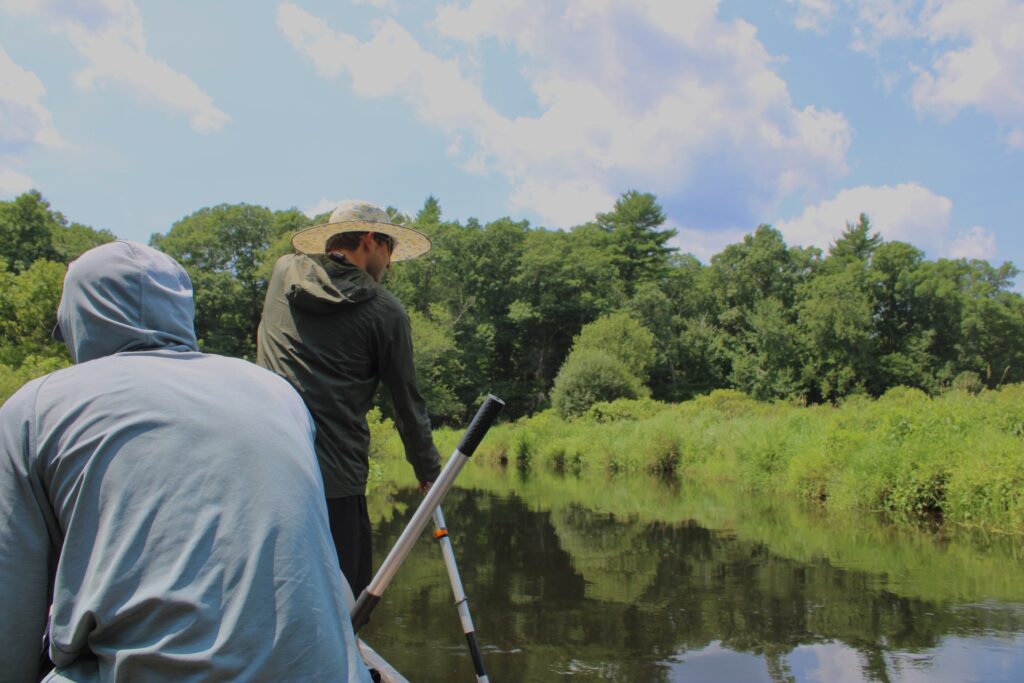

That’s not to say the ride out wasn’t worth a look. We found a few largemouth sight fishing and blind casting. The continued presence of heavy wood and the surprise decked out kayak spin guy (where do they keep coming from?) showed potential for yet another solid bass spot if we returned in the future. We also found a beautiful spring creek tributary— noticeably colder, clear except for the slightest tannin stain, silently working through intact wetland and hemlock groves. It was full of fun sight fishing opportunities for fallfish, sunnies, and bass. Those small interactions and discoveries on painfully slow days are the kinds of things that remind you to stay locked in as an angler. And when there’s no fish to be prepared for, at least you can take in the nature.
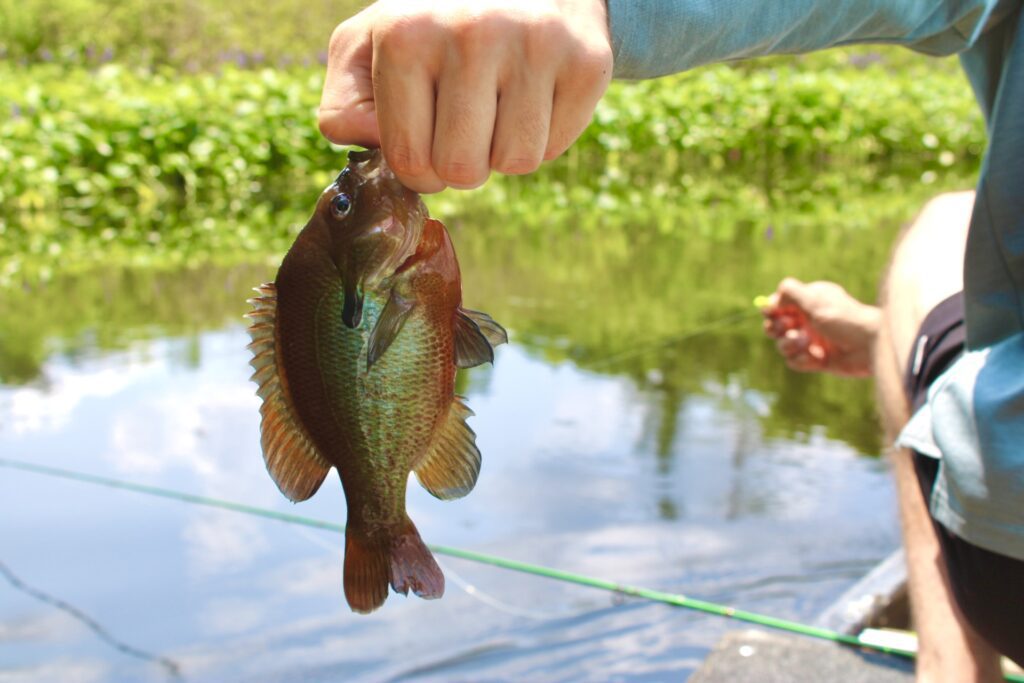

By the time we finished the paddle back upstream and loaded the boat onto the car, our team was tired, sweaty, and out of food except for a couple bags of melted candy we’d bought exactly for this occasion. Noticing we were fairly close to the coast now, we made a sugar-fueled decision to press on into the evening and take a shot at one more target species we were sure we could achieve.
The bay just a quarter of a mile downstream of us felt like a bath. But higher up in this forgotten creek, icy springs and a thick canopy dropped the water temperatures down into the high fifties. The first step into a deeper crossing was a shock to my system as my body reached an equilibrium that even the A/C full blasting in Charlie’s car couldn’t help me achieve. With or without trout, I was rejuvenated.
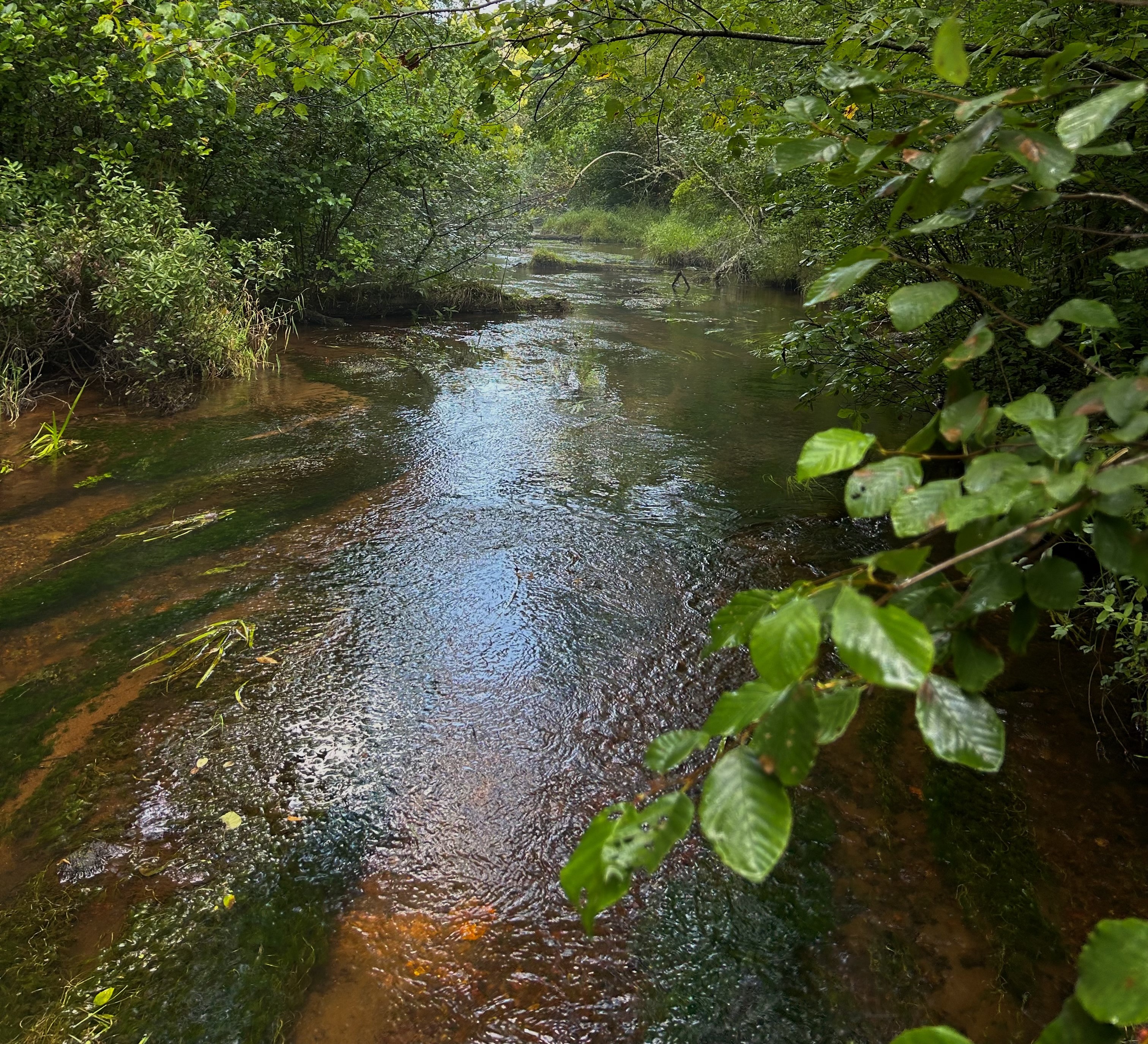

The brookies definitely helped though. They were comfortable and more than happy to take whatever offerings we sunk down to their summer homes. Within an hour, the three of us ran through a productive stretch of water and had a handful of char encounters as a reward for our last ditch effort.
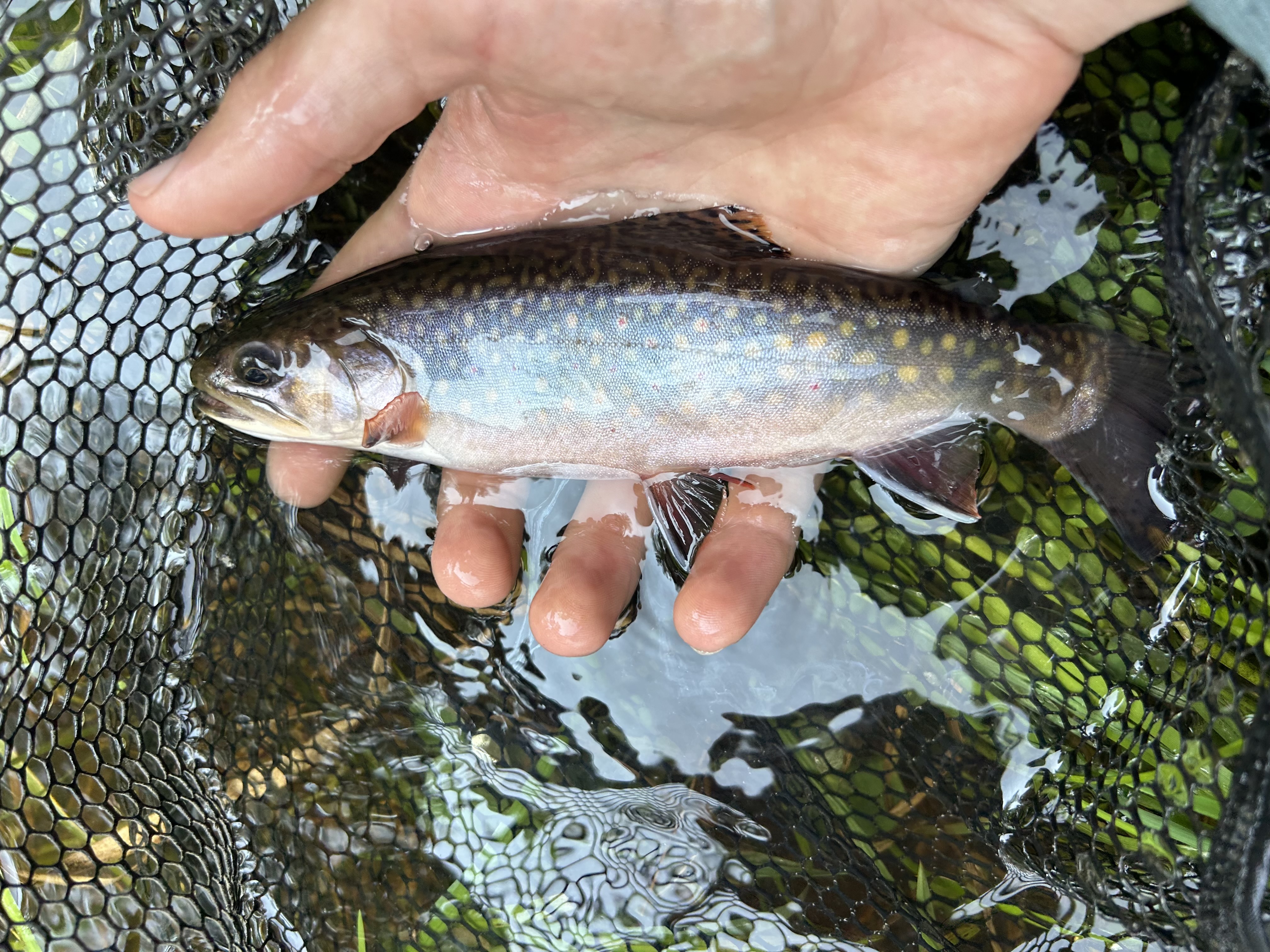

I’m all good with getting a good beating from a fishery. A result is still a result, and it’s the price you pay for exploring. I even have a great feeling about going back to all the spots we hit that weekend another time, preferably a time when I can’t cook an egg on the floor of our canoe. I can get behind going home fishless knowing we tried hard and can somehow learn from what we did, but sometimes you just need to win one. Transferring from warm water longshots to unpressured, small stream brook trout is quite the pivot, though a little bit of success after a few hard days is a great place to leave off for next time. And when you’re new to an area like I am, drawing on your limited knowledge to turn a tough outing into a better one means maybe, and just maybe, things might be coming together a little bit.
“I’m glad we did that,” I remember saying to the guys as I exited the car in front of my apartment. “It may not have gone exactly to plan, but I’d say we beat the heat”. And as I confidently turned my sunwashed brain towards the door, leaving all of my reels I’d need for the week in the backseat of Charlie’s car without even thinking to look back, things were perfect.
